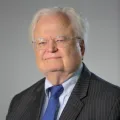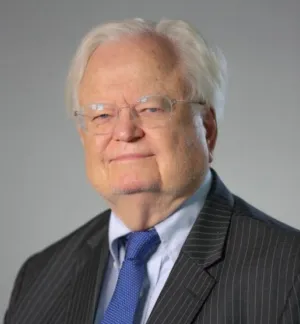As we have seen this week in the historic agreement between the U.S. and India on civil nuclear cooperation, diplomacy is flourishing once more at the State Department.
Condoleezza Rice is driving this return to diplomacy, and the deal with New Delhi reflects the extraordinary U.S. diplomatic activism that has characterized her brief time in office: a commitment to ease the humanitarian crisis in Darfur, where she has just spent two days; intense efforts to promote a successful Israeli withdrawal from Gaza; a systematic strategy to increase international support for Iraq; a renewed diplomatic presence in Asia through a series of bilateral visits to the region by the secretary and her senior colleagues; a resumption of the six-party talks on North Korea's nuclear weapons program; full support for the EU-3 attempt to persuade Iran to cease its acquisition of nuclear weapons; improvement in the Transatlantic relationship; and so forth.
Diplomacy is the effort to influence the policies of other governments through negotiation, whether unilaterally or with coalitions. This can be by persuasion, threat, or coercion short of force. Such effective American diplomacy requires at least five elements.
First, there must be a trusting relationship between the president and the secretary of state, an instinctive agreement regarding the objectives and methods of U.S. foreign policy. They must have the same strategic DNA. This was true during each of the post-1945 surges of historic statecraft: Harry Truman and Dean Acheson, Richard Nixon and Henry Kissinger, Ronald Reagan and George Shultz, George H.W. Bush and James Baker. The president must never wonder if the secretary of state has a separate agenda, or is half-hearted in carrying out the administration's goals while winking and nodding at foreign counterparts — or those in Congress — who disagree with U.S. policy. Acheson wrote that, "The most important aspect of the relationship between the president and the secretary of state is that they both understand who is president."
The secretary must also decisively demonstrate that the State Department is an instrument to accomplish the president's goals, and not a continual obstacle to them. This requires that the secretary force the president's agenda on the department, not the other way around. And other governments must be confident that the secretary always speaks for the president and can deliver on commitments. Ms. Rice more than satisfies all these requirements.
Second, the celebrated secretaries of state knew what they wanted to accomplish (under presidential guidance) over the longer term, and how they intended to do it. Mr. Baker stressed, "Never let the other fellow set the agenda." And Mr. Shultz said this of Reagan, "He had a strong and constructive agenda, much of it labeled impossible and unattainable in the early years of his presidency. He challenged the conventional wisdom. . . " Or Mr. Kissinger: "Leaders must invoke an alchemy of great vision."
As Washington debates this president's "great vision" toward the Greater Middle East, it is useful to remember that all four of the presidents and secretaries of state I mention above — the giants, with Cordell Hull, of U.S. diplomacy in the 20th century — departed from commonplace foreign policy ideas. These statesmen set out to alter the world in fundamental, and beneficial, ways. And they succeeded.
Nietzsche thought that "Man's most enduring stupidity is forgetting what he is trying to do." The consummate secretaries of state remember every morning what they are trying to achieve over an extended timeline. Mr. Kissinger points out that secretaries must come to the post with those strategic ideas already fully developed, because the office "consumes intellectual capital; it does not create it."
A quick perusal of Ms. Rice's recent public statements shows that she knows very well what she is trying to accomplish on behalf of the American people and the president, and that her mission is not primarily measured in days, weeks or months. In public pronouncements, she persistently returns to historic themes, as she did in her recent speech at Cairo University, because she seeks to shape the world as deeply as did her most illustrious forerunners.
Third, the secretary must be a skilful diplomat. This does not mean always being the essence of congeniality, and it cannot be manifested mostly inside the Beltway or by telephone. Recall that Mr. Baker, in his first few weeks in office, went to every NATO capital to see their politicians on their home turf. Mr. Kissinger was on the road so much that there was a magazine cover with the flash, "Kissinger Visits America." They wanted to smell the domestic politics that their counterparts had to deal with and they knew that Ma Bell was not the answer.
Messrs. Kissinger and Baker understood that diplomacy depends on establishing close personal relationships as well as on power, and that attending periodic large international meetings was not the same as visiting their foreign colleagues in their capitals. Mr. Shultz has observed that "listening is an underrated way to acquire knowledge." The best place to do such listening (and convincing) is in their setting, not ours. With a personality that can range from cashmere to kryptonite, Ms. Rice has been constantly abroad since she has been in office, and has already visited dozens of countries. This is a calculated strategy, and it exhibits her command of this tool of diplomacy. (And she never has to worry that frequent foreign travel will weaken her influence with the president.)
Fourth, a successful secretary of state must put together an all-star team. This Ms. Rice has done, recruiting the best talent at State in decades. Bob Zoellick has long been recognized as a premier public policy intellectual and practitioner. He may be the most talented number two at State since Acheson. Undersecretary for Political Affairs Nick Burns is the most gifted Foreign Service Officer of his generation. Undersecretary for Arms Control and International Security Bob Joseph is a non-proliferation master. Undersecretary Designate for Public Diplomacy Karen Hughes is magisterial in her command of public persuasion. Undersecretary designate for Economic Affairs Josette Shiner is a canny Washington insider. Counselor Philip Zelikow is smarter than almost anybody. And her assistant secretaries are brainy and battle-tested.
Fifth, the secretary must be an eloquent public voice of U.S. foreign policy. During her short time in office, Ms. Rice has delivered many speeches, had dozens of press conferences, and given innumerable media interviews. She believes that explaining the administration's foreign policy is a crucial dimension of her job — and clearly has more than a knack for it.
All this is not necessarily to say that Ms. Rice will one day be seen as a great secretary of state. Challenges abound: Iraq remains tough; the EU-3 negotiations with Tehran are likely to collapse this year; North Korea may spark an upheaval in Northeast Asia; the Middle East peace process will probably be in serious trouble after Israel's withdrawal from Gaza, if not before; U.S.-Russia relations deteriorate; Chinese power is ever more prominent in Asia; Latin America throbs with leftist uncertainty. And, as Mr. Kissinger has said, "Each success only buys an admission ticket to a more difficult problem."
The foremost secretaries of state encountered such a catalogue of challenges, but perhaps only James Baker, with German unification and the end of the Soviet Union, had as many opportunities as does this secretary. Freedom is marching forward, including in the Greater Middle East. Authoritarianism is on the defensive. Building on American primacy, there is reason and evidence for strategic and moral optimism. Ms. Rice has all the requisites to make her tenure at the State Department as consequential as those of her most eminent predecessors in the past century. History awaits her performance.
Mr. Blackwill is president of Barbour Griffith & Rogers International, a Republican lobbying and consulting firm. He was U.S. ambassador to India from 2001–2003, and deputy national security adviser for strategic planning in 2003–2004.
Blackwill, Robert. “Diplomacy Is Back at the State Department!.” The Wall Street Journal, July 22, 2005



